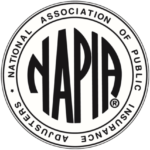As the winter chill settles in, property owners face many maintenance challenges, with frozen pipes ranking among the most troublesome. This blog post endeavors to equip you with the necessary know-how to manage and claim insurance for frozen pipe incidents effectively. We blend professional advice with personal insights to ensure you’re adequately prepared for the hurdles that may arise.
Winter weather can wreak havoc on your property’s plumbing system. When water freezes within pipes, it expands, often resulting in bursts that can cause significant water damage. Understanding your insurance coverage, the claims process and preventive measures is crucial. Let’s delve into a comprehensive guide to handling insurance claims for frozen pipes, ensuring you’re not left out in the cold this winter season.
Understanding Your Insurance Policy:
Know What’s Covered:
While most insurance policies typically cover damage caused by frozen pipes, it’s imperative to scrutinize the fine print. Coverage may vary depending on whether the damage is sudden, accidental or attributed to neglect.
The Importance of Documentation:
Documentation serves as your strongest ally when filing a claim. Be sure to capture photos of the damage and maintain records of all repairs and related expenses. Compiling an inventory of affected items can also expedite the claims process.
Filing a Claim:
- Report the Incident Promptly: It is crucial to report a frozen pipe burst to your insurance provider promptly. Timeliness often plays a pivotal role in the success of your claim.
- The Claims Process Explained: An adjuster will likely assess the damage following your report. They’ll review your policy, evaluate the extent of the damage, and ascertain the claim’s validity and value. Familiarizing yourself with this process can help manage expectations and facilitate a smoother experience.
Prevention is Better Than Cure:
Reduce the risk of frozen pipes through simple maintenance practices:
- Maintain a minimum property temperature of 55 degrees Fahrenheit, even during absences.
- Insulate exposed pipes.
- Seal leaks that permit cold air infiltration near pipe locations.
- Document all maintenance activities, as this information can be invaluable when filing an insurance claim.
Advanced Measures:
Consider employing temperature sensors or an automated water shut-off system for added protection against frozen pipes. Some insurers may even offer premium discounts for such proactive measures.
Navigating insurance claims and negotiations can be overwhelming, particularly for those unfamiliar with the process. Services like National Claims Negotiators specialize in assisting property owners with their insurance claims, ensuring they receive fair compensation. Their team of experienced adjusters handles negotiations with insurers to secure settlements that adequately cover losses. For a complimentary claim review, click here.
By arming yourself with knowledge, proactive maintenance, and expert assistance, you can effectively navigate the challenges posed by frozen pipe incidents while safeguarding your property and financial well-being.


